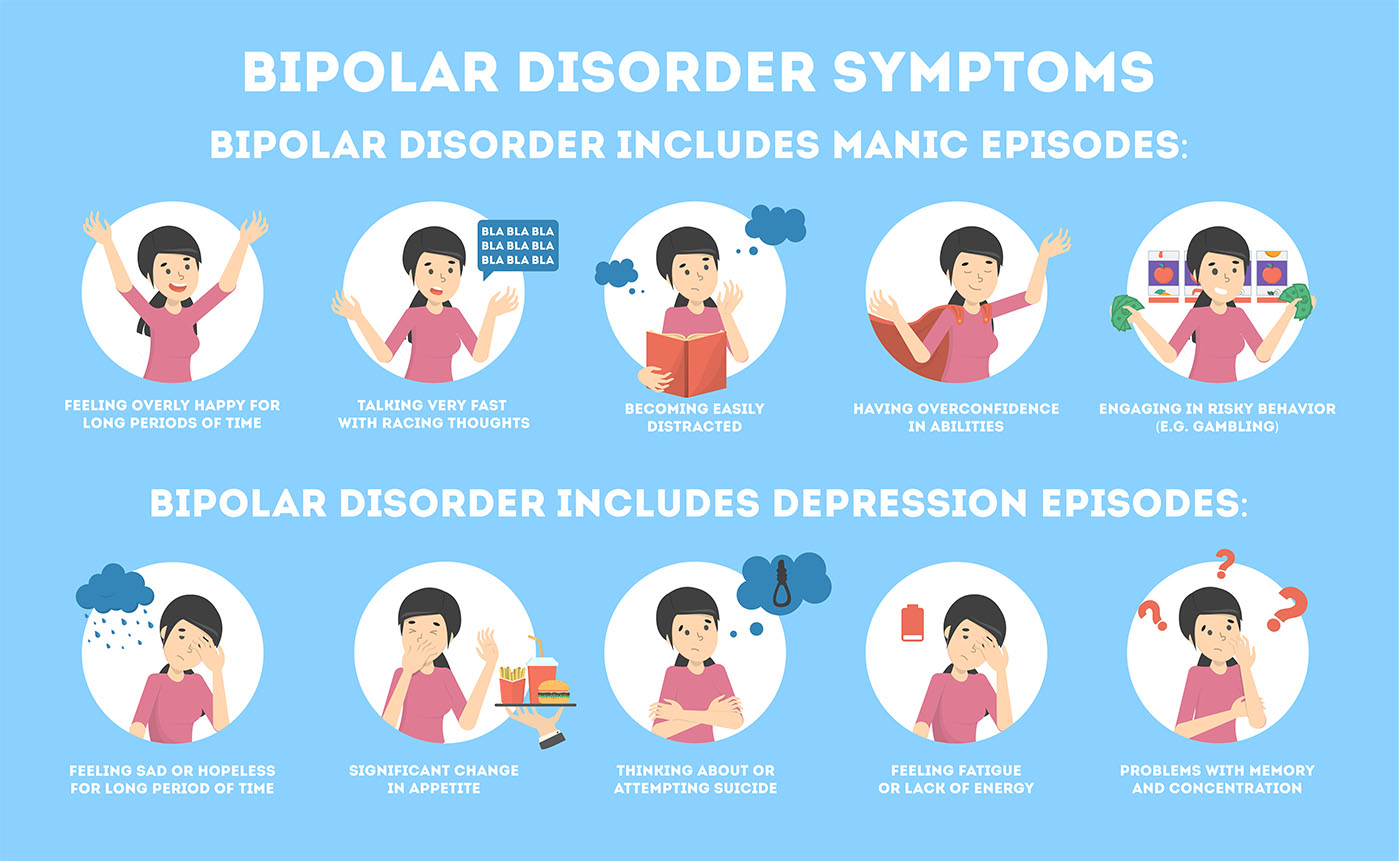In the article written by the National Institute of Mental Health, researchers have identified genetic locations related to bipolar disorder and tell us the possible biological cause for the disorder. The study also compared the overlap between bipolar I disorder (manic and sometimes depressive episodes) and bipolar II disorder (depressive and hypomanic episodes). Bipolar I disorder shows a stronger genetic correlation with schizophrenia, while bipolar II disorder correlates with major depression. Now it is also noted that traits such as excessive alcohol consumption, smoking, and sleeping issues can also affect bipolar disorder. To test the genome and understand differences researchers sampled 57 groups across Europe, North America, and Australia. This includes about 41K people with bipolar disorder, and 371K without. 64 genomic locations were noted as risk loci pertaining to this issue, which means this study identified 33 more than previously identified in previous studies. Those 64 genomes include 161 individual genes where some involve how brain neurons signal each other. This allows targets for biological treatments with specific medication to help treat bipolar disorder.
Bipolar disorder is a mental illness known for its highs and lows. I truly believe that more research into not just environmental causes but also genetic risks could make someone more susceptible to exhibiting symptoms of this illness. It is interesting to see how they can identify differences in loci that can cause the neurons to not signal properly, but also affect how the medication given to treat it affects our brain. If research can understand biologically how bipolar disorder affects people's brains, we can create more personalized treatments for those who have this disorder.
Sources:
Genomic Data From More Than 41,000 People Shed New Light on Bipolar Disorder. 2021 Sep 29. National Institute of Mental Health (NIMH). https://www.nimh.nih.gov/news/science-news/2021/genomic-data-from-more-than-41000-people-shed-new-light-on-bipolar-disorder.
Bipolar disorder - Symptoms and causes - Mayo Clinic. 2022 Dec 13. Mayo Clinic. https://www.mayoclinic.org/diseases-conditions/bipolar-disorder/symptoms-causes/syc-20355955.




